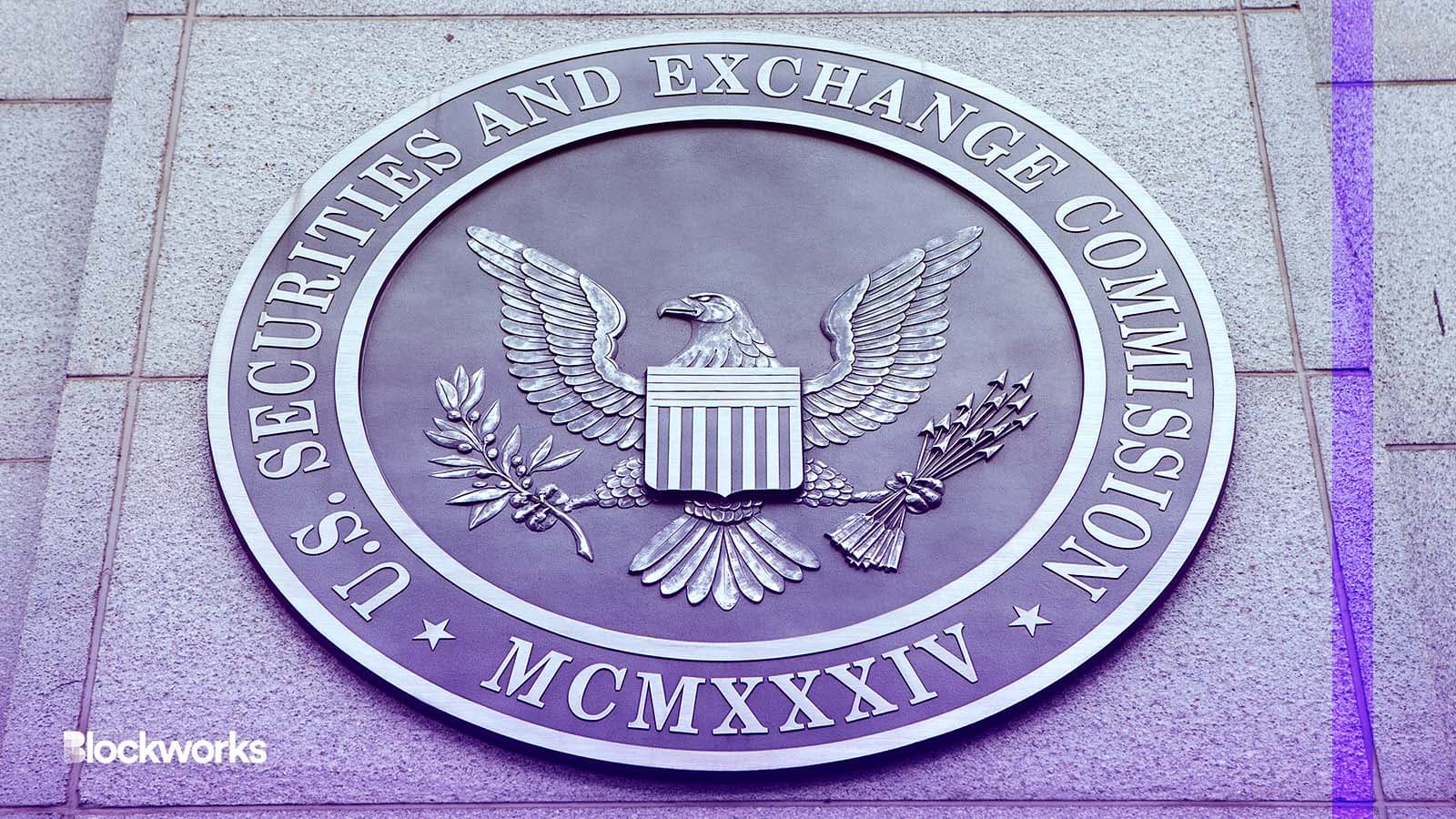SEC’s proposed exchange definition would cause ‘de facto expatriation’ of DeFi companies
The SEC is making it clear to DeFi and crypto firms: “Centralize, shut down, or get out” of the US

Mark Van Scyoc/Shutterstock modified by Blockworks
The SEC has proposed a rule change that would expand the definition of exchanges and would cover platforms that trade crypto asset securities as well as some DeFi platforms.
The proposed changes were opened up for a comment period back in April, and the SEC has yet to receive positive feedback.
“The upshot of this technological reality is that holding DeFi protocols to the requirements of the regulatory regimes governing national securities exchanges and ATSs would result in their de facto expatriation from the United States. DeFi is rapidly gaining trading market share in crypto assets, especially after recent and high-profile fraud and compliance issues at leading centralized and intermediated non-U.S. crypto asset exchanges,” the DeFi Education Fund (DEF) wrote in a 47-page response letter.
The SEC said in April that it was reopening the comment period on the exchanges definition after it moved to expand it to cover crypto and DeFi.
“The reopening release reiterated the applicability of existing rules to platforms that trade crypto asset securities, including so-called ‘DeFi’ systems, and provides supplemental information and economic analysis for systems that would be included in the new, proposed exchange definition,” the SEC said in a press release.
DEF wrote that the SEC’s proposal “fails to identify alternative regulatory approaches, and does not offer a complete, cogent or defensible qualitative or quantitative cost-benefit analysis. The Commission has not ‘accurately’ considered DeFi’s role in the broader crypto market.”
One of the biggest concerns around the proposal is the potential for the SEC to target decentralized exchanges (DEXs).
Tavonia Evans, on behalf of the National Policy Network of Women of Color in Blockchain, wrote, “not all DEXs trade crypto for fiat currencies. Some DEXs primarily deal with the exchange of crypto assets, including stablecoins. The proposed rule does not provide clear guidelines on how it applies to DEXs that do not facilitate crypto-to-fiat transactions. I urge the SEC to provide explicit guidance on this matter to ensure that these DEXs can operate within the regulatory framework.”
Paradigm also criticized the SECs proposal – stating that the Commission would be forcing a “Hobson’s choice” — similar to what it did with Coinbase — if it proceeds to attempt to regulate DEXs and that the SEC’s approach to the proposal was “haphazard.”
“A DEX, particularly those using automated market maker mechanisms, involves no person or entity playing an intermediating role between buyers and sellers — instead, it uses an algorithm to balance pools of cryptoassets that potential buyers or sellers can freely access,” Paradigm wrote.
They went so far as to state that the SEC needs to “withdraw” its proposed redefinition and “begin its consideration of how to adapt its regulations in the DeFi context anew.”
The comment period ends on June 13.
“Simply put, the proposed rulemaking makes the SEC’s position clear: centralize, shut down, or get out of the United States,” Miller Whitehouse-Levine, CEO of DEF, told Blockworks in an email.
“The SEC’s proposal embodies the SEC’s new-found policymaking powers and its disingenuous approach to crypto more broadly. Imposing unworkable registration requirements on DeFi protocol developers or other market participants as if they played an intermediating role would close the US to revolutionary innovation and cause great harm to US financial market participants,” he said.
Get the news in your inbox. Explore Blockworks newsletters:
- The Breakdown: Decoding crypto and the markets. Daily.
- 0xResearch: Alpha in your inbox. Think like an analyst.






